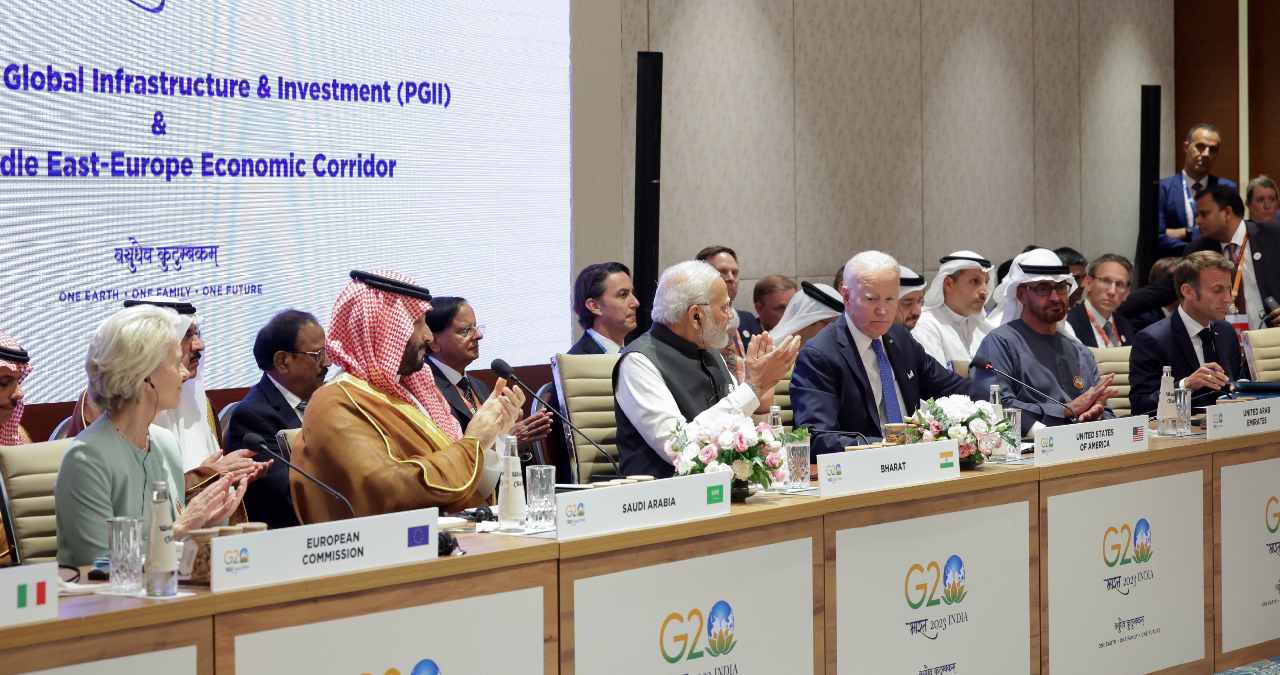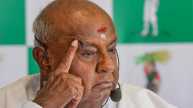New Delhi: In a historic move, leaders from across the globe have come together to unveil a Memorandum of Understanding (MoU) that directly challenges China’s expansive Belt and Road Initiative (BRI). Prime Minister Narendra Modi hailed it as “a testament to human endeavor and unity across continents,” while US President Joe Biden deemed it “a real big deal.” This momentous agreement involves India, the United States, Saudi Arabia, the United Arab Emirates, France, Germany, Italy, and the European Union.
BRI’s decade marked by controversy and stagnation
As the Belt and Road Initiative celebrates its 10th anniversary, it faces increasing scrutiny for its role in allowing China to exert influence over developing nations, often trapping them in debt cycles. The new India-Middle East-Europe Economic Corridor, which also includes Israel and Jordan, adds to the challenges facing the BRI. Notably, data reveals that the value of new foreign contracted projects under the BRI has stagnated since 2019, coinciding with China’s domestic real estate debt crisis.
Italy’s pivoting away from BRI signals global shift
The global order witnessed a significant shift at the recent G20 summit, with Italian Premier Giorgia Meloni’s participation signaling Italy’s inclination to distance itself from the Belt and Road Initiative. Italy had been the first G7 country to join Xi Jinping’s ambitious project in 2019, making this shift particularly noteworthy.
The world stands at an inflection point, says President Biden
President Biden emphasized the critical moment in history during his remarks, stating, “The world stands at an inflection point… where our investments are more critical than ever.” This underscores the far-reaching impact of the decisions made by global leaders today on the future.
ALSO READ: G: 20 Summit: And The Day One At G20 Went To India!
Ambitious objectives of the India-Middle East-Europe Economic Corridor
The White House has released a fact sheet outlining the objectives of the India-Middle East-Europe Economic Corridor. This initiative aims to establish railway and sea connectivity between Europe, the Middle East, and Asia, connecting commercial hubs, supporting clean energy development and export, laying undersea cables, expanding energy grids and telecommunication lines, promoting clean energy technology, and enhancing Internet access for communities.
The corridor is expected to attract additional Asian countries, bolstering manufacturing, food security, and supply chains within its sphere of influence. The MoU outlines that the corridor will consist of an east corridor linking India to the Arabian Gulf and a northern corridor connecting the Arabian Gulf to Europe.
Key features include a railway network for reliable cross-border ship-to-rail transit, plans for electricity cables, and clean hydrogen pipelines across the Middle East.
Over the next sixty days, signatories will delve into further details on transit routes, coordination bodies, and technical aspects as they develop an action plan. The Indian government underscores the importance of transparent and consultative connectivity initiatives, while respecting the sovereignty and territorial integrity of all countries involved, following principles of financial responsibility, economic viability, and ecological and environmental standards.










